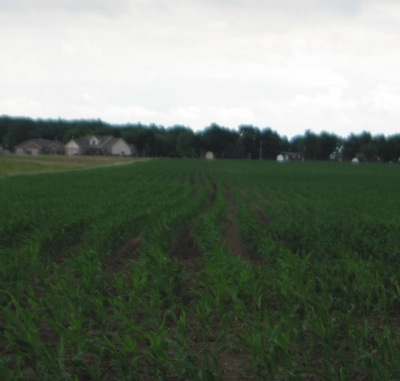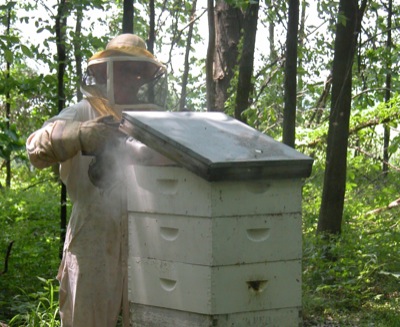Tuesday, June 5th, 2007
Rain, rain come again
By Nancy Allen

Photo by Nancy Allen/The Daily Standard
This cornfield, just outside of Celina, looks much healthier after receiving some rain.
Some of the county's thirsty crops got a drink in the last couple of days as thunderstorms rolled through, while others got just a sprinkle or nothing at all.
A word that best sums up recent days precipitation is "spotty," not a word farmers like to hear.
"I heard anywhere from barely anything at all to over an inch," Mercer County OSU Extension agent Todd Mangen said on Monday. "You could have a person with two farms and one farm got rain and the other didn't, and they're not that far apart. That's how spotty it was."
Mangen, who lives in Darke County just over the Mercer County line, said his land got no rain at all during the weekend.
The recent hot dry weather has resulted in some uneven stands of both corn and soybeans. This year's crops also got off to a slow start because they were planted a week or more late due to a cold snap in mid- to late April that sent temperatures below freezing, Mangen said.
Mike Baucher, a program specialist at the Mercer County Farm Service Agency in Celina, said he heard reports of a half inch to more than an inch in the southern part of the county around St. Henry, Coldwater and Maria Stein. But the northern part of the county around Rockford and Mendon only got about a half inch. Just west of Celina, producers were reporting just a few tenths of rain fell, Baucher said.
A drive around some corn fields near Celina showed a significant deepening in the color of the corn and more growth just since Saturday.
Mangen said the stressed crops that did get the needed rain should bounce back without any long-term damage. Before the rain came, some crops were in the critical stage, he added.
"We were hurting. We definitely needed it, but a lot of damage wasn't done yet, except for the uneven stands," Mangen said.
Mangen said he did hear some scattered reports of minimal replanting due to uneven stands of corn and soybeans and lack of emergence.
"The people that got rain were lucky, but there are still pockets out there that didn't get anything at all," he said.


